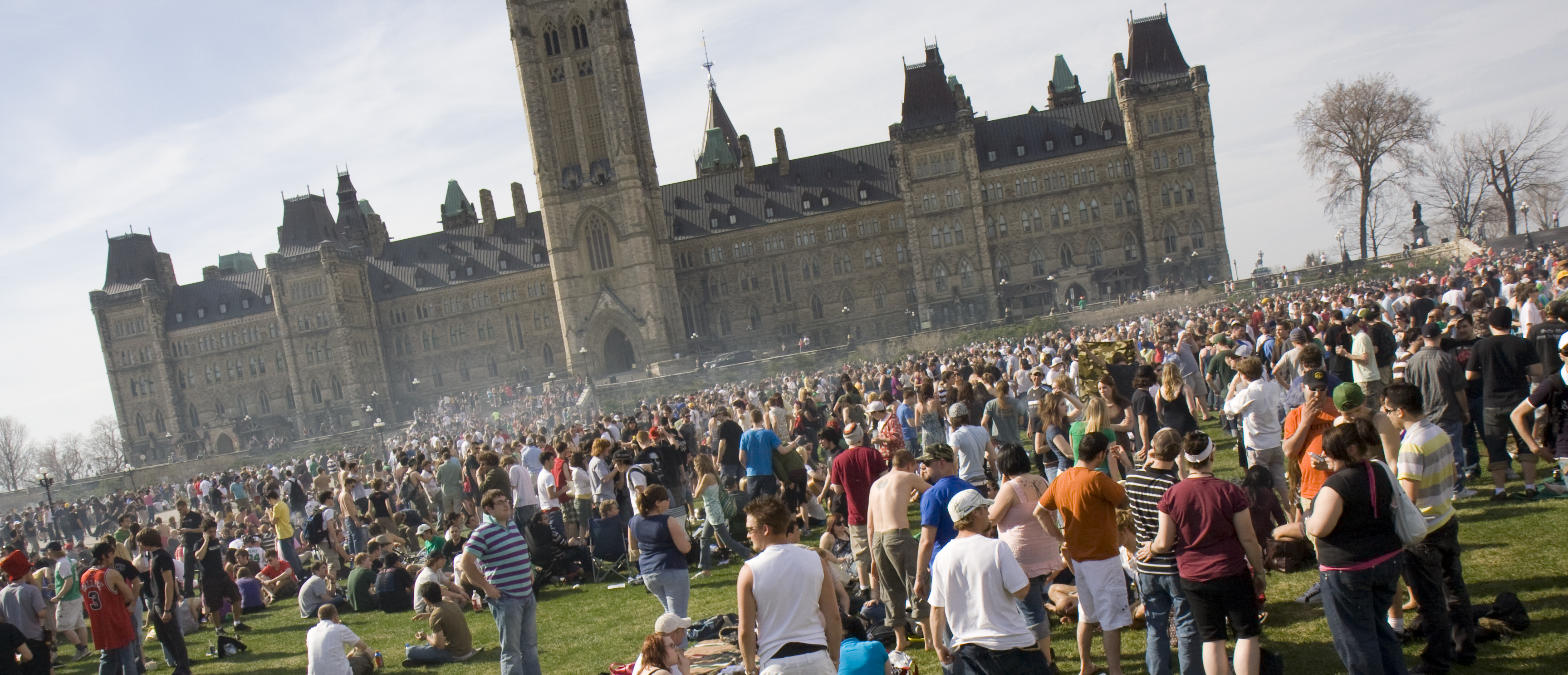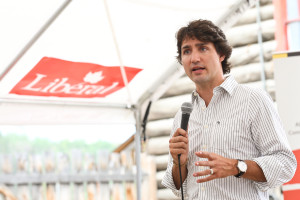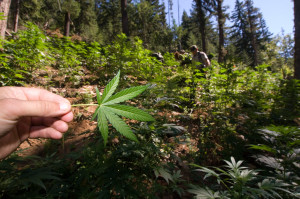Canada and Cannabis: Unpacking National Marijuana Legalization

Canada has long been regarded as a country that has been quite ahead of the curve when it comes to implementing progressive reforms, which is why it may come as a surprise to some that Canada has yet to legalize marijuana. Currently, the use of marijuana is illegal unless possessed for medical purposes, but Justin Trudeau’s government has been incredibly vocal about pushing for legalization across the country. The Trudeau government has stated that they intend to “legalize, regulate, and restrict access to marijuana” and that “Canada’s current system of marijuana prohibition does not work.” They cite two main reasons for this: that its illegality does not really stop anyone from using it, and the fact that it impedes the justice system by giving out criminal records for what many consider to me a minor crime. The idea of reducing crime statistics is a particularly pertinent one. In 2013, 67% of all drug-related offences were cannabis-related. Of these, 80%, or 59 000 were simply possession charges. This also calls into question the groups of people these charges are affecting. In Canada’s Northern territories that have large concentrations of Indigenous populations, rates of cannabis offences were five times higher than the national average. Cannabis-related offences also affect youth. 90% of all drug-related crimes committed by youth involve cannabis, and 81% of these account for cannabis possession. Half of all cannabis related offences also only involve a single charge. The government estimates that the illegal marijuana industry in Canada is actually worth about $7 billion.
As of now, the federal government is pushing for legalization legislation to be enacted in the spring of 2017, and have commissioned a task force to prepare a report on legalization that has been delivered to the government. While many are optimistic about these reforms, it is not unexpected that there is a fair amount of backlash, much of which is surprisingly coming from marijuana advocates themselves.

The task force on legalization, led by Anne McLellan, a formal federal cabinet minister, went through an extensive research process to prepare their report. They conducted online consultations which brought in approximately 30 000 responses, conducted visits to parts of the US where marijuana has been legalized, and also held round table discussions with experts. The report is said to include advise on topics such as minimum age, dispensary laws, and any related penalties that could be incurred.
The Canadian Medical Association has said that the age limit for sales should be 21, given the impact of marijuana on the brain’s development, however there are fears that this is still unrealistically high. The group Canadian Students for Sensible Drug Policy has said that the legal age of use should affect a person’s “ability … to make an informed decision” instead of the safety of use. This could potentially mean equating the legal age of marijuana use to the legal age(s) of drinking in Canada, for example.
As for who will benefit financially from this kind of legislation, the results are unclear. While medical marijuana producer’s stocks have increased in value, it is not clear what sort of taxes or pricing mechanisms the government wishes to pursue. However, what they have said that tax revenue will be spent on further research as well as rehabilitation services.
The government has said that any legislation on the matter would not just be for legalization, but also for penalties regarding situations that could arise from legalization. Mainly, these would include the sales of marijuana to minors, drug impaired driving, and illegal sales.
While the task force report, at this point in time, has yet to be released to the public, this has not deterred Canadians from speaking out both in favour of, and against, legislation being enacted.
A recent Globe and Mail/Nanos Research Poll has found that legalization is somewhat supported by about 68% of the population. British Columbia had the highest amount of support, with 75% in favour, while overall, about 30% of those surveyed said they were opposed or somewhat opposed to legalization. A slight majority felt that legalization would actually lead to an increase of young people using the drug, but an even greater majority expressed that they did not consider it to be a “gateway drug”.
Some of the most pervasive backlash has come from those who produce marijuana themselves. As expected in any sort of large scale, top down economic relations, the people that are feeling the crunch the most, are small- and medium-sized producers. Cannabis Growers of Canada, an organization that represents these producers, has had its top stakeholders express fear about being crowded out of the market by larger, already established, medical marijuana producers. Chris Horlacher, one of the founding members of CGC, has stated that the government does not understand the product and the culture. There is fear that government- regulated marijuana will be from larger, already established suppliers, and will be regulated to the point where people will not be able to access the full breadth of quality and variety from the product. Essentially, the argument from these smaller producers is that the federal government, who are newcomers to this industry, are legitimizing products that they do not actually have any experience with.
Larger organizations like the Cannabis Canada Association, which represents the majority of currently licensed medical marijuana producers, are not as fearful as smaller scale producers. However, they still believe that the government should look to offering its constituents more variety, rather than just generic, federally regulated marijuana. Eric Nash, a consultant in the industry, has stated that he believes “a diverse cannabis is essential for legalization to be a success”.

With all the discussion surrounding legalization, one of the benefits that could make Canadian marijuana legalization successful is the fact that it can look to other places of examples regarding what successful (or unsuccessful) legalization actually looks like. One of the foremost examples of this is Colorado.
Colorado legalized marijuana for recreational consumption in 2014, and according to Colorado Senate President Bill Cadman, it has been a success. Marijuana is heavily regulated in the state, and has still brought thousands of new jobs, as well as $135 million in for the government last year alone. While these empirics demonstrate good signs, Colorado Law Enforcement has expressed some dismay about the side effects of legalization. Mainly, that a lot of the marijuana being used in Colorado is consumed in the form of edibles, and that these are difficult to test in terms of potency in cases like drugged driving, and are also harmful towards children who do not know the difference between these and regular food. In any case, most of the people in Colorado who have suffered marijuana-related accidents are those who come from out of state, and do not have a wealth of experience with the freedom of marijuana legalization that they are able to experience in Colorado. There are certainly fears from the Canadian point of view that relate to this, the most pressing being cracking down on marijuana-related crimes. It can also be learned that these crimes, as well as other accidents that can come from legalization, are mostly tied back into edibles, rather than other forms of consumption, so the variety of mediums to use marijuana is something the government must also consider when preparing its regulations.
Ultimately, Canada has a lot to learn going forward in this process of legalization, and this task force is a sure sign that the government is serious about taking steps to make this happen. The public is hopeful that this task force report will contain solid recommendations that will make access to marijuana easier in this country. At the end of the day, however, a task force report is not a set in stone policy, and the government can still choose to amend it and even ignore it. With all of the current resources surrounding legalization, it is promising that they will be able to make the right decision.
